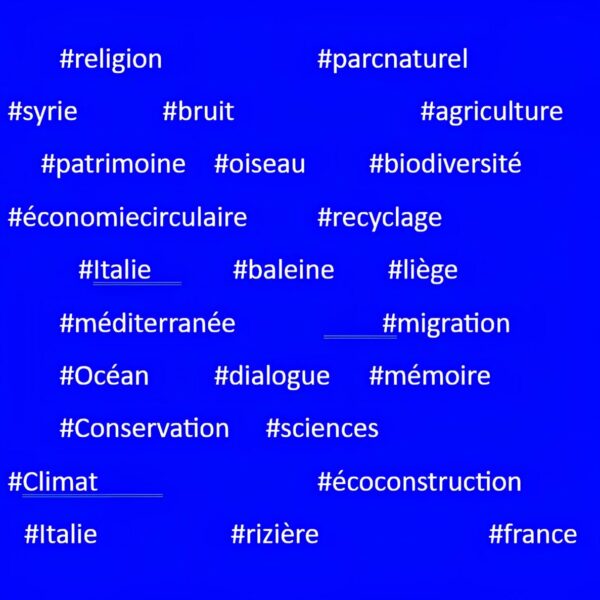This week in 22-med, the reopening of the Syrian monastery of Mar Mûsa reminds us of the power of places of memory and dialogue between Christians and Muslims. In Italy, the coexistence of agriculture and biodiversity is being reinvented in the rice fields of Lombardy. In France, citizen ingenuity transforms cork from bottle stoppers into ecological materials. In the Oceans, the behavior of whales alerts us to a massive destruction of biodiversity due to the noise pollution generated by human activities.
Summary of articles published this week in 22-med, available in the 11 languages used on the site. To read them in full: subscribe and support an independent media.
The interfaith reopening of the Monastery of Mar Mûsa
As Syria experienced a surge of intercommunal violence this summer, the monastery of Mar Mûsa has become a beacon of interfaith dialogue. At the end of July, pilgrims, some coming from afar, converged there in memory of the Italian Jesuit Paolo Dall’Oglio, who dedicated his life to interfaith hospitality. Manoël Pénicaud* is a researcher at CNRS.
In Lombardy, rice farmers protect wading bird chicks
In the Ticino Valley, in northern Italy, the rice fields of Cassolnovo have become the stage for an unexpected experiment: more than a hundred nests of the Italian avocet, a bird with long graceful legs, have found refuge in the heart of the fields. Rather than viewing them as intruders, rice farmers have chosen to adapt, modifying their daily practices to preserve the chicks. This initiative, carried out in collaboration with the Ticino Valley Natural Park, demonstrates that agriculture that is very attentive to nature can still be productive.
Insulating concrete made from cork from bottle stoppers
In La Rochelle, the association Écho-Mer gives a second life to cork stoppers from the Atlantic coast. Transformed into insulating materials, they become concrete or coatings for eco-construction. From citizen mobilization to industrial partnerships, this sector is establishing itself as a local model of recycling and sustainable innovation, while raising awareness among residents about a better-protected sea.
What whales reveal to us about the noise of men
In the book The Lost Song of Whales (Actes Sud), Laurence Paoli explains how noise pollution from humans – ships, drilling, wind turbines – disrupts the fragile balance of the oceans. The starting point for scientists' awareness was the mass stranding of cetaceans in the 1980s and their autopsy. Between scientific investigations and reflections on our relationship with animal intelligence, this specialist in life and earth sciences calls for us to finally hear the voices from the depths.
